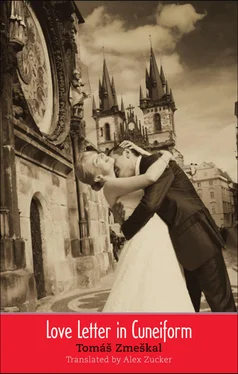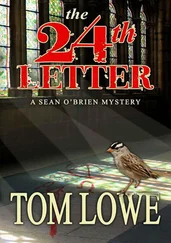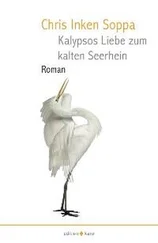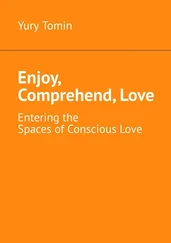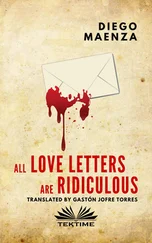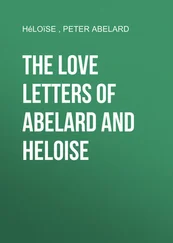“Oh, of course, of course,” Antonín said. The conversation was turning in a direction he wasn’t sure he wanted to go.
“So what was it that actually brought you here to see us, then?” Antonín asked.
“A few years ago I had a patient from the Czech Republic,” Dr. Sukthankar said. “He had been living in England a long time, he wasn’t allowed to go back, and he missed Prague terribly. He always said it was the most beautiful city in the world, so I decided I needed to come have a look.”
“So how do you like it so far?” Antonín said.
“Beautiful. Truly beautiful,” Dr. Sukthankar said. “So beautiful there are moments when it reminds me of places in India.”
“Is that right?” Antonín said, using the most reserved tone of voice he could muster.
Dr. Sukthankar spent one full day at the conference and the rest of his four-day visit in Prague playing the perfect tourist. He saw Prague Castle, Charles Bridge, Kampa Park, Old Town Square, sampled the beer, took in a few bookstores, and spent half a day in the University Library. On the eve of his departure to Vienna, Dr. Lukavský invited him out to dinner. As long as he had even a smidgen of energy left, he knew he had to keep up his foreign contacts at all costs. He asked again how Dr. Sukthankar had enjoyed his short stay.
“You know,” his English colleague replied, “that Czechoslovak patient of mine I told you about had a recurring dream: He dreamed he went down to the underworld and when he came to the gates he saw a giant man riding a giant bull. The man came to a sudden stop and the bull reared up, but the man kept control of him and said to my patient, ‘Eat these leftovers from my bull. Eat them, just as your father once did.’ My patient, we’ll call him Max, hesitated a moment, but then did as the giant asked. He passed through the gates into the underworld and came to a large square, like one of the squares in Prague, he said, with ordinary people walking up and down the sidewalks. He stopped a moment to get his bearings and suddenly saw a homeless man running toward him. The strange thing was, one second he was invisible, the next he was not. He ran into Max at one of the moments when he was invisible, and before Max could figure out what had happened he was gone. Then he discovered that the strange homeless man had taken his letter of safe conduct, stating his name and the purpose of his journey to the underworld, which meant he might not be able to get back. Nervous now, Max continued to make his way through the underworld, wandering off course and getting lost several times. He didn’t know which way to turn. After walking down several streets he found himself in a large garden on a tract behind a palace. There were two women there weaving fabric on a loom. One with black thread, the other with white. Nearby he saw a huge wheel being turned by four girls. The wheel had three hundred and sixty-five spokes and there was a man standing spread-legged in the middle who looked like the man on the bull Max had seen in front of the gates. Only this man was a little younger and smiled at Max. Finally Max found a way leading out of the city, and once he was outside the walls he saw a small lake with water lilies on it. He plucked one of them, and when he finally reached home he asked his father about what he had seen, and his father said: ‘Those two women were weaving the present, which will become the history of the future. The man in the middle is the Guardian of Truth and Lies, who sees to it that they remain separate. The wheel is obviously a representation of the year with its three hundred and sixty-five days, and the four girls are the four seasons. The leftovers from the giant bull that you ate were the elixir of immortality, which is what saved your life in the underworld after the stepbrother of the Guardian of Truth and Lies, whose name is the Defender of Myth and Illusion, stole your letter of safe conduct.’ And that’s it,” Dr. Sukthankar concluded.
Antonín squirmed in his seat a moment or two, then said: “Obviously, if we analyze the dream using Jung with a slight Adlerian modification, then, …” He paused, noticing Dr. Sukthankar gently shaking his head.
“I’m afraid that’s not it. In fact my patient’s dream was nearly identical to a story from the Mahabharata. An epic poem, you might call it sort of an Indian Odyssey , though about fifteen times longer. I discovered the story yesterday in a catalogue on a computer at one of the libraries recommended to me by your colleague Dr. Kadlecová. The librarian was even kind enough to translate a portion of it into English for me. So that’s most likely where my patient got it from. A book. And then years later, it turned up in a dream.”
“So no such thing as mystery then?”
“None.”
“I believe that’s what they call globalization, no?” Antonín said.
“I suppose,” said Sukthankar.
“Oh, you know what? You’ll definitely know the answer to this. Why is the lotus flower so important in India?”
Dr. Sukthankar thought a moment, then said: “I think because it symbolizes purity and beauty. It grows out of mud, but no mud ever sticks to it.”
“All right then,” said Antonín. “So, how have you liked it here?”
“Beautiful city,” said Sukthankar. “Gorgeous, in fact. And those statues on the bridge … the Charles Bridge, it’s called?”
“Yes,” said Antonín, “Charles, although most of the statues, maybe all of them, are of saints, you know. Christian saints. So what do you think about Christianity, anyway?”
“I don’t know,” said Sukthankar. “I may have told you, but I went to Catholic school as a child.”
“Right, so what do you think? I mean, as someone who belongs to two cultures.”
“I don’t have any opinion on that,” Sukthankar said. “Although the founder of modern India, Gandhi, when asked what he thought of Christianity, said he thought it would be a good idea.”
“I see,” said Antonín. “Well, as I said, our history isn’t exactly rosy or optimistic. It’s got all sorts of shadows and cobwebs.”
“That doesn’t surprise me,” said Sukthankar. “A city this beautiful couldn’t have risen up out of nothing.”
“Like your lotus flower,” Antonín said in amusement.
“Yes, like the lotus,” Dr. Sukthankar said with a smile. “My grandfather in India used to end ceremonies by saying, ‘The wheel of being rolls through this world, without beginning and without end. It rolls through this world, causing creation and extinction. The wheel of being rolls and rolls on, without beginning and without end.’”
“Now that’s globalization,” said Antonín.
“In a sense,” said the doctor. “In a sense.”
22. A RUN THROUGH THE WOODS
A thought emerges in Josef’s mind as he runs: the world is divided in two. Top and bottom. Left and right. Moving and still. The part of the world that’s old, as old as the world itself, and the younger part, with blood, veins and arteries, brains. The world is split from top to bottom into worlds of green and red. The world of insects and animals, the bloody human world, and then the green world, roots sunken firmly in the ground. The world of grasses, trees, herbs, the world of saps, resins, and juices … and all of it the world of landscapes that preceded the world of unreliable insect and human muscles pumping blood — hearts.
But whichever way Josef turned, left or right, this world was out of order. Either the world itself had been castrated, or the mirror of deeds had been turned around to the point that the meaning of natural was in question. It couldn’t be, it was impossible, Josef reflected. It was absolutely to the core, to the bone impossible for nature, here, somewhere between the forty-ninth and fiftieth parallels north of the equator and the thirteenth and fourteenth meridians east of the Greenwich Observatory, to be so heterogeneous that the world truly didn’t make the slightest sense at all anymore. How could the worlds of sap and blood be so interstitched, interlaced, implanted into each other that two giraffes, one rhinoceros, and three spiny anteaters were roaming around free at this latitude and longitude? It couldn’t be. Why, just a few months ago the whole place had been covered in snow. What was going on with the world? Was it out of joint, or had it just sprained an ankle that could be set back at least more or less in place with the help of some vinegar and splints? Josef turned, rotated, made a move that resulted in his left foot crashing down on a branch that splintered more out of dryness than because of his weight. He sprang up again, startled by clouds of dust and spores, sparkling pridefully in the afternoon sun as they floated up to the level of his anxious eyes from the lowlands of semiwithered moss. His body made nearly a complete clockwise pirouette, swaying as he looked back in the direction he had come from. One of the giraffes was staring right at him. He’d never realized before how big and beautiful the eyes were on an average-height giraffe, and shouting, “It can’t be!” and “Fifty degrees north of the equator!” and “In the Czech lands? The Czech lands!” and “My God, in the Czech lands!” he abruptly shot off again in the opposite direction from the one the two giraffes and three spiny anteaters had come from. The rhino was either still far behind him or had wandered off in a different direction.
Читать дальше
